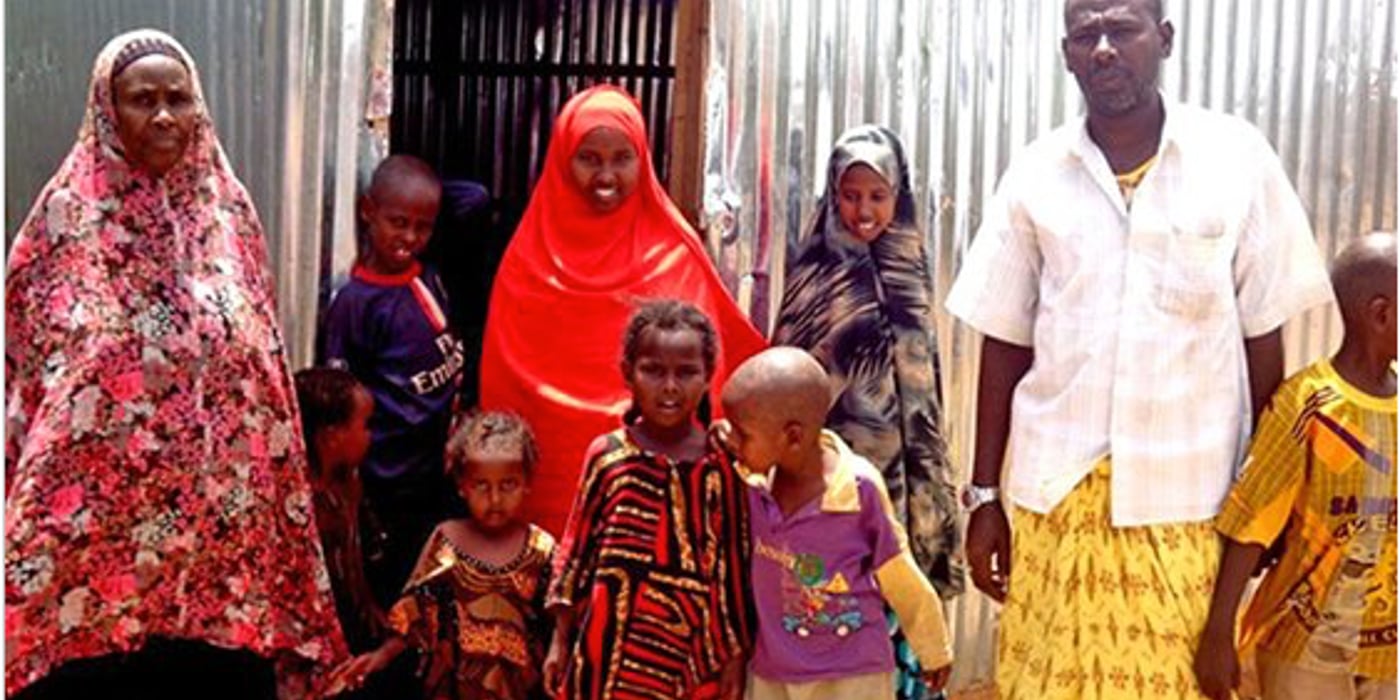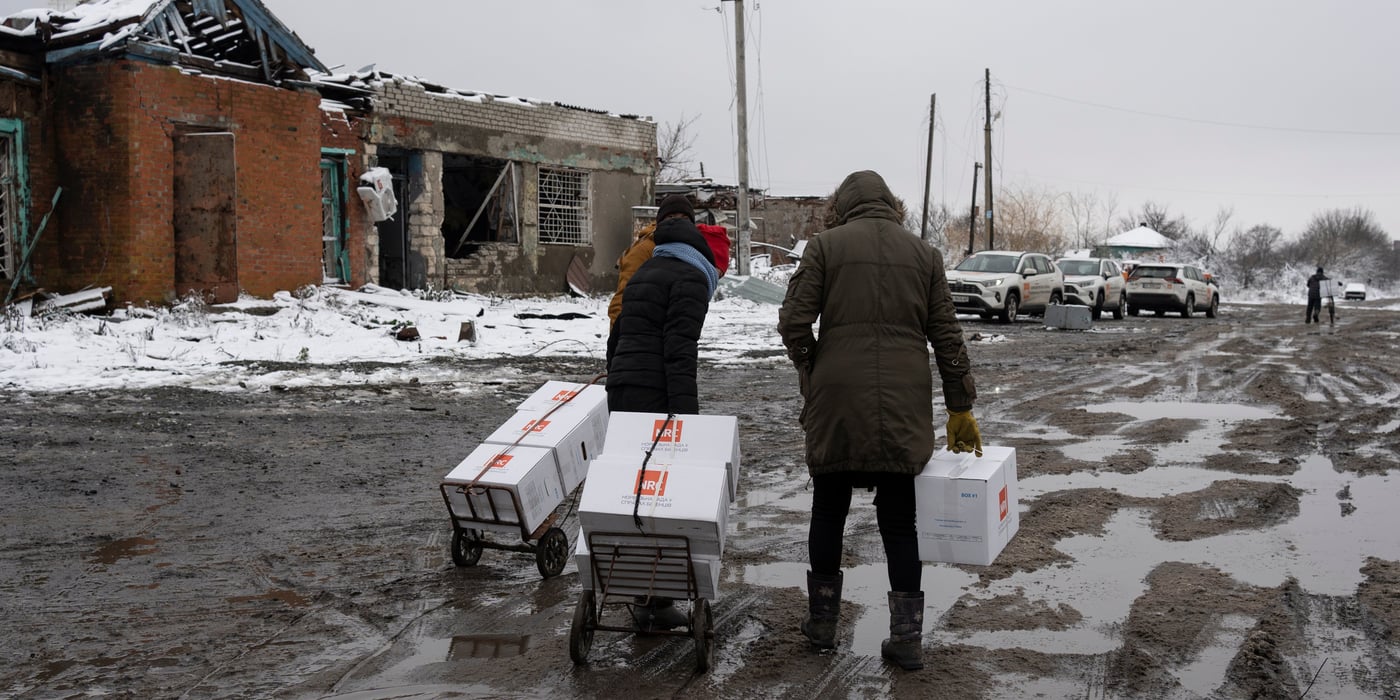
In 2005 Hawa and her four children abandoned their home fleeing conflict. Together, they crossed the border into Kenya as conflict in the Bay Region escalated and managed to settle at Hagadera Camp in Dabaab. Her husband had been killed during the conflict and hence she was left to raise her six children on her own.
Voluntary return
When information of the relative security in Somalia reached Dadaab, she regained the courage to return, motivated by the desire to improve her community in Baidoa. When the opportunity to return was presented to her in December 2014, she faced her fears and decided to register for voluntary return. Eventually, she managed to safely go back to her hometown traveling 882 Kilometers by road to Baidoa.
Her return was made possible with the assistance of the UN High Commission for Refugees (UNHCR) as part of a pilot project for safe and voluntary return to Somalia, as well as the reintegration of Somali refugees in Kenya. Through its Housing, Land and Property (HLP) component, The Norwegian Refugee Council (NRC) in Somalia has been supporting the initiative by providing returnees with information on villages of origin, HLP rights and remedies through legal methods. A total of 716 households from Kenya and 210 urban returnees within Somalia have been supported at way-stations of Dhobley, Baidao and Mogadishu.
A normal life
Hawa says that life in Somalia is different from Dadaab refugee camp in Kenya. She is happy to return home.
"Home is always where the heart is," she says.
"It is not a bed of roses, but I live a normal life. My son has been struggling to get daily work at the marketplace and I have my share of challenges having to provide for the needs of my family. However, It is very fulfilling to know that my children will grow up among their own kin without discrimination and seek to progress in their lives”.
No hope in Dadaab
She is now one of the beneficiaries of NRC’s shelter programme being conducted in the areas of return with land tenure secured through the NRC Information, Counseling and Legal Assistance (ICLA) project. After her return, Hawa found that her land had been covered in bushes and had to spend a couple of weeks clearing the grounds while spending nights in make-shift shelters.
“Life in Dadaab refugee camp for me was full of uncertainty; I did not have any hopes or dreams. For that reason, I am not going back to Dadaab unless Baidoa becomes too threatening for me to live in. My grandchildren are benefiting from free education and hopefully, I will continue to get humanitarian support here and most importantly I wish to be buried here when I die”, says Hawa.
Need for support
“There is a need to support returnees beyond the return package and decentralise support to reach their villages of origin. This is necessary in humanitarian programming in Somalia in order to avoid a relapse into new refugee and internal displacement situations. We need to mitigate further displacement possibilities and accelerate reintegration with the host communities”, says Ahmed Ali, NRC‘s ICLA Project Officer in Baidoa.



